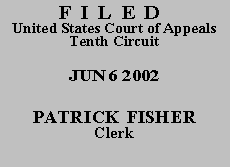

| THOMAS D. BERRY,
Petitioner - Appellant, v. COMMISSIONER OF INTERNAL REVENUE, Respondent - Appellee. |
|
Thomas Berry appeals from a Tax Court judgment upholding the Commissioner's notice of deficiency for federal income taxes due on his 1996 return. The deficiency notice stemmed from the Commissioner's refusal to allow Mr. Berry to deduct as "alimony" $154,000 in fees and costs he paid to his former wife's attorney during the Berrys' divorce proceedings. The Commissioner took the position that Mr. Berry's payment did not satisfy the definition of alimony under section 71(b)(1) of the Internal Revenue Code, 26 U.S.C. § 71(b)(1). The Tax Court held for the Commissioner, and we affirm.
In 1995, Kay Rogers Berry filed a divorce petition against her husband Thomas Berry in an Oklahoma state court. Thereafter the state court issued two temporary orders requiring Mr. Berry to pay Mrs. Berry's attorney's fees and costs. It issued a third such order, in August 1996, directing Mr. Berry to pay an additional $154,000 to his wife's attorney. In 1997, Mr. and Mrs. Berry negotiated a settlement; the court entered a final decree of divorce in accord with the parties' agreement. Mr. Berry, who complied with all of the court's temporary fee orders, claims that his $154,000 payment to Mrs. Berry's attorney constitutes alimony. He concludes therefore that it is tax deductible under section 215(a) of the Code, 26 U.S.C. § 215(a).
To qualify for the alimony deduction, a payment must satisfy the Code's four-part definition. The parties dispute only whether the contested payment meets the fourth criterion of that definition: Would Mrs. Berry's death release Mr. Berry from the duty to pay his former wife's attorney? If so, his payment is tax deductible; if not, he cannot claim the deduction.(1)
The parties agree that had Mrs. Berry died anytime after the parties' final divorce decree was entered, Mr. Berry would indeed remain liable to pay her attorney's fees. Thus, the narrow question before us is whether, as a hypothetical matter, he would have been liable had she died before the final decree was entered.
Oklahoma law creates and defines the liability arising from the state court order directing Mr. Berry to pay Mrs. Berry's attorney's fees; once the breadth of that liability is established, federal law determines its tax consequences. See Morgan v. Commissioner, 309 U.S. 78, 80 (1940). Accordingly, because the parties disagree only on the scope of Mr. Berry's obligation, our task is the same as the Tax Court's. We must thus predict how the Oklahoma Supreme Court would resolve the question before us. Such a prediction is necessary because no Oklahoma statute or court decision precisely addresses the issue.
We agree with the Tax Court's conclusion that Kelly v. Maupin, 58 P.2d 116 (Okla. 1936), is an apt analogue, one strongly suggesting that the Oklahoma Supreme Court would hold Mr. Berry liable for his wife's attorney's fees even if she had died before their final divorce decree was entered. Kelly held that a couple's voluntary dismissal of their divorce action did not prevent the court from enforcing its earlier ruling requiring the husband to pay the wife's attorney's fees. Id. at 119. Like the Tax Court, we see little difference between a divorce action terminated by voluntary dismissal, as in Kelly, and one, as postulated here, terminated by death. The policy justification supporting the rule announced in Kelly applies as well in this case: An attorney fee award remains enforceable even after a dismissal of a divorce because "[i]ts purpose is to provide a means whereby attorneys can be assured of their pay for properly preparing and presenting [a divorce] case." Id.
Mr. Berry points out that under Oklahoma law the death of one spouse before a final divorce decree is entered deprives the court of jurisdiction over the parties and generally terminates the cause of action. See Pellow v. Pellow, 714 P.2d 593, 597 (Okla. 1985). He is no doubt correct as a general matter, but Kelly, which has never been questioned much less overruled, amounts to an exception to that rule, for it makes clear that in a divorce case an attorney may enforce an existing fee award notwithstanding that the divorce action itself was dismissed without a final decree. We are unpersuaded, moreover, by Mr. Berry's effort to distinguish Kelly on its facts.
The judgment of the United States Tax Court is AFFIRMED.
Entered for the Court
Circuit Judge
*. This order and judgment is not binding precedent, except under the doctrines of law of the case, res judicata, and collateral estoppel. The court generally disfavors the citation of orders and judgments; nevertheless, an order and judgment may be cited under the terms and conditions of 10th Cir. R. 36.3.
1. The Code, in full, defines an alimony payment as follows:
The term "alimony or separate maintenance payment" means any payment in cash if--
(A) such payment is received by (or on behalf of) a spouse under a divorce or separation instrument,
(B) the divorce or separation instrument does not designate such payment as a payment which is not includible in gross income under this section and not allowable as a deduction under section 215,
(C) in the case of an individual legally separated from his spouse under a decree of divorce or of separate maintenance, the payee spouse and the payor spouse are not members of the same household at the time such payment is made, and
(D) there is no liability to make any such payment for any period after the death of the payee spouse and there is no liability to make any payment (in cash or property) as a substitute for such payments after the death of the payee spouse.
26 U.S.C. § 71(b)(1).